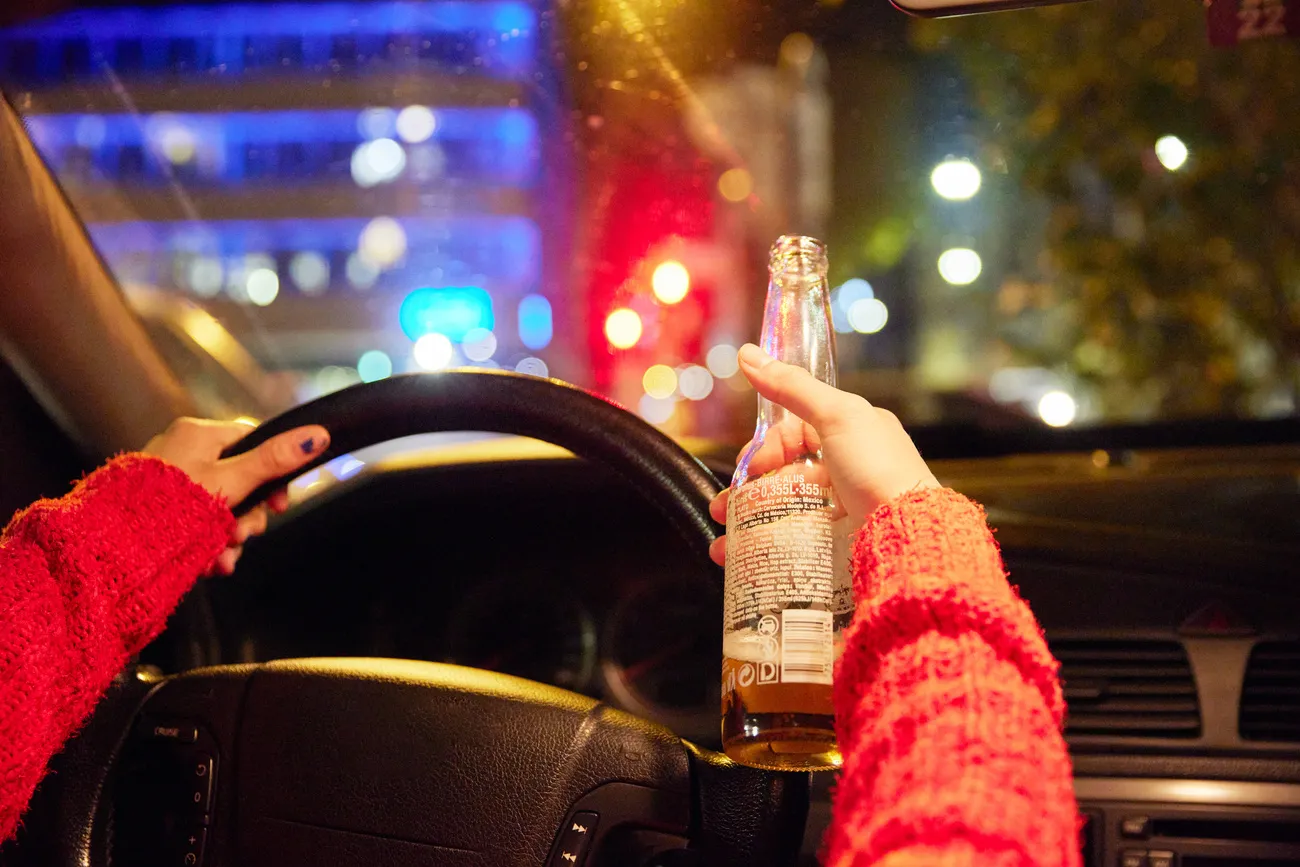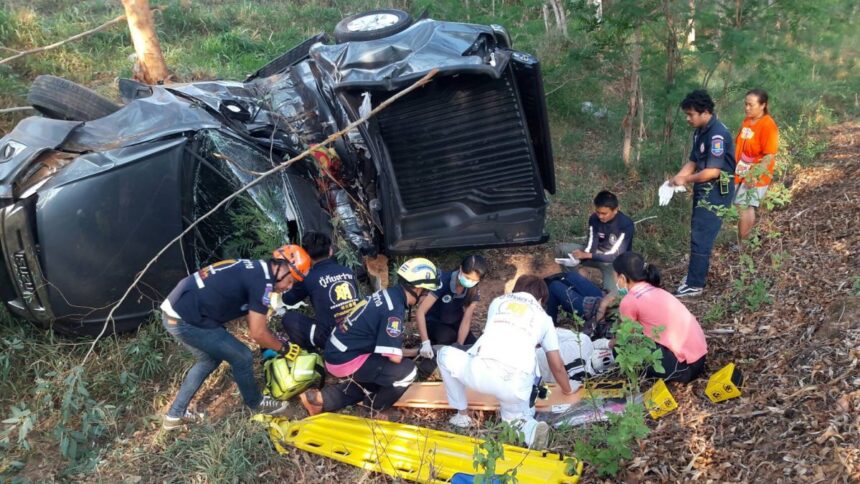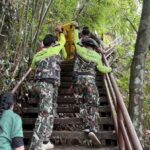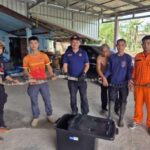The Road Safety Operation Centre (RSOC) is urging police and related agencies to strictly enforce traffic rules and take extra steps to keep roads safe during Songkran. Suggesting putting up more community checkpoints to watch for risky and drunk driving.
Deputy Interior Ministry permanent secretary, Kajohn Srichavanotai, said on Monday that most accidents over the past three days of Songkran 2025 involved motorcycles. Not wearing helmets and drunk driving were the main reasons behind the high number of injuries and deaths.
Police are sending out more mobile units to patrol busy areas and cracking down on alcohol sales in Songkran celebration zones.
He said local authorities are being told to watch for shops selling alcohol to minors or outside permitted hours, and he warned that anyone caught selling alcohol to underage drinkers involved in an accident could face criminal charges.
These calls for tighter action come after 59 people died and 458 were hurt in 460 crashes across Thailand during the first two days of Songkran this year, based on data from the Road Safety Command Centre.
The Road Safety Operation Centre reports speeding led to nearly 40% of the crashes. Drunk driving caused over 27%, while cutting in was behind about 21%. Motorcycles were involved in more than 85% of crashes. Most accidents happened on straight roads, with 40% on highways and 34% on village roads.
Crashes happened most often between 6am and 9am, and again from 3pm to 9pm. Most victims were between 20 and 29 years old.
Mukdahan Province in northeastern Thailand had the most crashes and injuries, with 23 and 25. Bangkok reported the highest number of deaths, with nine people killed.
The Department of Probation reported that 1,363 cases went to probation over two days. Fifteen drivers were ordered by the court to wear electronic ankle bracelets for offences like drunk driving, reckless driving, or drinking while behind the wheel.

Drunk Driving in Thailand
Drunk driving is a major issue in Thailand, contributing significantly to the country’s high road accident and fatality rates. The problem spikes during festive periods like Songkran (Thai New Year), with thousands of DUI cases reported annually—5,589 during Songkran 2024 alone, accounting for 96.6% of traffic violations in that period.
About 26% of road deaths in Thailand are alcohol-related, and over 25% of accidents involve impaired driving, with motorcycles dominating crash statistics at 83-85%.
Thailand’s legal blood alcohol content (BAC) limit is 0.05% for most drivers, but stricter at 0.02% for those under 20, new drivers, or those without valid licenses. Penalties include fines up to 200,000 THB, imprisonment up to 10 years, license suspension, or revocation, though enforcement is inconsistent.
Many offenders face lenient fines or suspended sentences, undermining deterrence. Police use breathalyzers, and new 2024 laws allow urine or blood tests if drivers refuse, but lax enforcement and cultural attitudes toward drinking persist as challenges.
Sobriety checkpoints often pop up during holidays, but how well they work depends on how officers use them and the tools they have. Some rely on old testing devices, and enforcement can be hit or miss.
Public campaigns try to grab attention with shocking messages, such as threatening offenders with a trip to the morgue. Still, many believe these scare tactics miss the real problems, like poor law enforcement and cultural attitudes toward drinking.
For many people in Thailand, driving under the influence feels like a minor risk because penalties are light. Inconsistent checks mean some drivers never get caught. Unless authorities take stronger, steady action, drunk driving will likely keep happening.
Related News:
Controversial Bill to Legalize Porn in Thailand Dead on Arrival

Geoff Thomas is an award winning journalist known for his sharp insights and no-nonsense reporting style. Over the years he has worked for Reuters and the Canadian Press covering everything from political scandals to human interest stories. He brings a clear and direct approach to his work.














